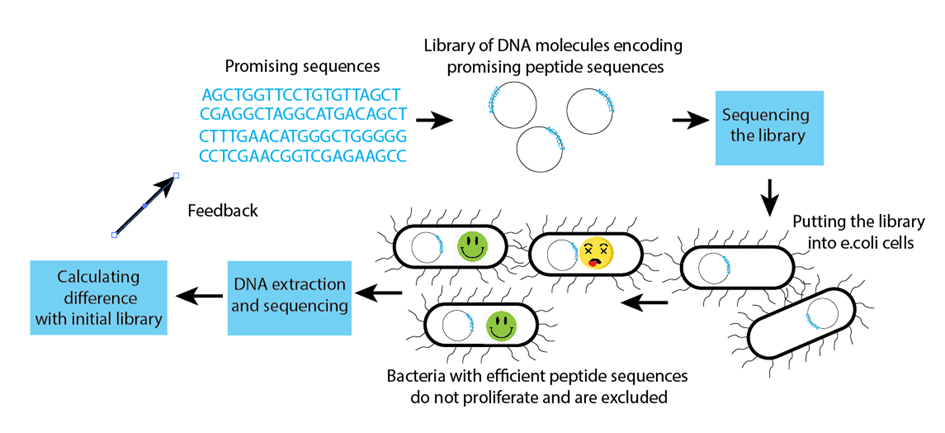Antibiotic resistance is one of emerging threats for the public health, which is projected to become the leading cause of deaths worldwide in coming decades. Discovery of new antibiotics is a slow and tedious process that requires screening mostly unculturable species for new mechanisms of defense from bacteria and it is laborious as you have to first produce the peptide, purify it and then test it one by one.
We plan to solve this by discovery and assessment of antimicrobial peptide sequences. We want to set up a system to screen antimicrobial peptides and test the proof of principal with known peptides plus some novel peptides. The workflow is described in the figure:

We will use high-throughput sequencing to test the effect of our peptides on the population of E.coli bacteria. After introduction of the DNA molecules into the E.coli cells they will be placed in the growth media and production of the peptides will be turned on. The cells expressing efficient peptides will not proliferate unlike the inefficient ones. After growth DNA will be extracted from the cells and sequenced. The difference between the sequence pool before and after growth of bacteria tells which peptides are efficient and which are not. The results of these findings will be fed back into our model to refine it.
The task of the student will be:
· Do the literature on antimicrobial peptide and NextGen sequencing
· Transform bacteria with selected plasmid carrying the gene with the antimicrobial peptide to test
· Culture and protein expression in the bacteria
· Extract DNA from the alive bacteria and sequencing
· Data analysis of the sequencing before and after expression of the bacterial peptide for comparison.
This assignment will be under the co-supervision of 2 groups, BIOS with Sergii Pud and BNT with Sandra Michel-Souzy.
Contact person:
